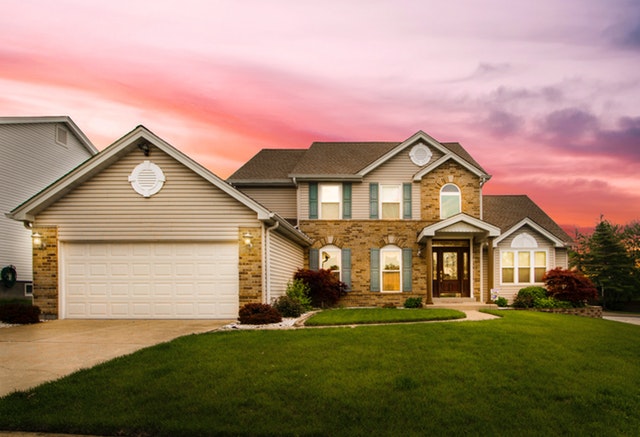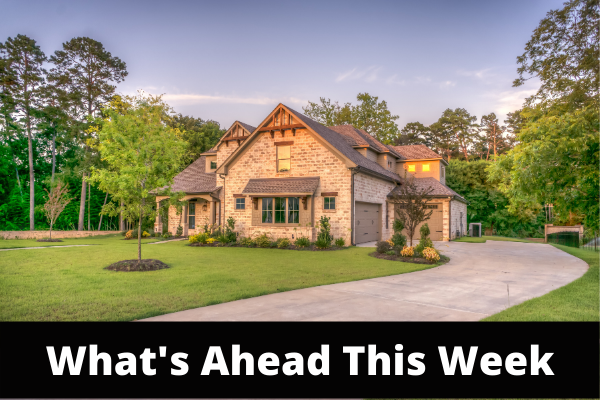An Overview Of Mortgage Points On Home Loans
 Unless someone works in the real estate or mortgage industry, there is a high likelihood that they are going to run into unfamiliar terms. Appraisals, underwriting, and private mortgage insurance are a few of the examples. One of the most common terms that people might run into is termed mortgage points. Even though the term “points” might sound positive, this is not always the case. What do people need to know about mortgage points?
Unless someone works in the real estate or mortgage industry, there is a high likelihood that they are going to run into unfamiliar terms. Appraisals, underwriting, and private mortgage insurance are a few of the examples. One of the most common terms that people might run into is termed mortgage points. Even though the term “points” might sound positive, this is not always the case. What do people need to know about mortgage points?
Mortgage Points Refer To Payments Due At Signing
When someone is negotiating for a home loan, they want to get the lowest interest rate possible. There are several ways that potential homeowners can get the interest rate reduced on their home loan. One option might be to increase the down payment. Another option might be to pay a percentage of the loan amount at signing.
Usually, mortgage points refer to a certain percentage of the loan amount that is due at signing. For example, someone who is being charged one mortgage point will pay 1 percent of the loan amount at signing. Why would someone want to pay a percentage of their loan early?
Mortgage Points Are Usually Paid In Exchange For A Lower Interest Rate
The most common reason why someone might pay mortgage points upfront is that they can bargain for a lower interest rate. For example, someone might be able to pay one mortgage point in exchange for having the interest rate on the rest of the loan dropped by 0.25 percent. Therefore, points go both ways. It is nice that someone can pay mortgage points to have the interest rate lowered on their loan; however, is this the correct decision?
Borrowers Have To Do Some Math
Ultimately, this comes down to a math equation. If a potential homeowner is forking over more money at signing, they are not going to be able to earn interest on that money in their bank account or the stock market. On the other hand, they will save money over the life of the loan because the interest rate will be reduced. Therefore, homeowners have to do some math and compare the interest they are losing by paying money upfront compared to the interest they are saving on the home loan.

 S & P Case-Shiller Home Price Indices reported the fastest pace of U.S home price growth in seven years. National home prices grew by 10.40 percent year-over-year in December as compared to November’s reading of 9.50 percent home price growth on a year-over-year basis.
S & P Case-Shiller Home Price Indices reported the fastest pace of U.S home price growth in seven years. National home prices grew by 10.40 percent year-over-year in December as compared to November’s reading of 9.50 percent home price growth on a year-over-year basis. Spring is aproaching fast and it is usually the busiest time of the year for home buying. After a long and cold winter, many people are ready to enjoy the nicer weather and begin to shop for a new home. Spring is also the perfect time for home buying for families with children because it allows them to move during the summer without interrupting school.
Spring is aproaching fast and it is usually the busiest time of the year for home buying. After a long and cold winter, many people are ready to enjoy the nicer weather and begin to shop for a new home. Spring is also the perfect time for home buying for families with children because it allows them to move during the summer without interrupting school. Last week’s economic reporting included readings from the National Association of Home Builders Housing Market Index, Commerce Department readings on housing starts and building permits issued along with data on sales of previously-owned homes. Weekly readings on mortgage rates and jobless claims were also released.
Last week’s economic reporting included readings from the National Association of Home Builders Housing Market Index, Commerce Department readings on housing starts and building permits issued along with data on sales of previously-owned homes. Weekly readings on mortgage rates and jobless claims were also released. When applying for a new home mortgage, many loan applicants initially consider applying for a 30-year fixed rate mortgage. This is perhaps the most common and traditional type of mortgage available. It allows you to enjoy the opportunity to pay for your home over the course of 30 years with equal payments every month. While this is one option, there are actually multiple choices available. For some applications, a variable rate mortgage may be more advantageous. If you are comparing the options between a fixed rate and a variable rate mortgage, you may consider a few points.
When applying for a new home mortgage, many loan applicants initially consider applying for a 30-year fixed rate mortgage. This is perhaps the most common and traditional type of mortgage available. It allows you to enjoy the opportunity to pay for your home over the course of 30 years with equal payments every month. While this is one option, there are actually multiple choices available. For some applications, a variable rate mortgage may be more advantageous. If you are comparing the options between a fixed rate and a variable rate mortgage, you may consider a few points.